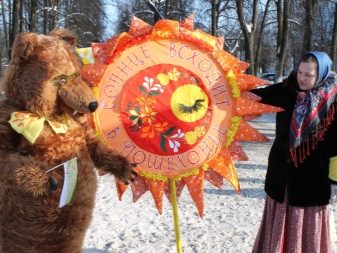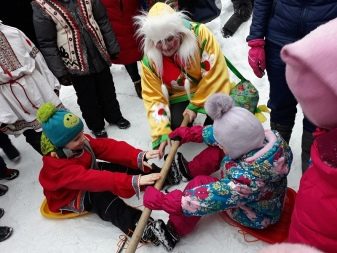All about Shrove Tuesday
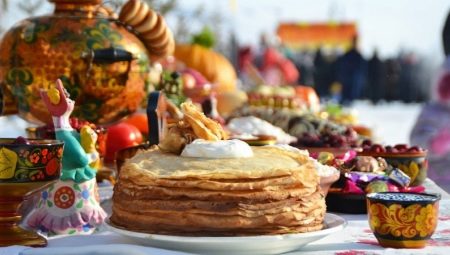
The roots of the Maslenitsa holiday, beloved by many, go far into the past and they have a pagan origin. The essence of Maslenitsa week is to celebrate winter and spring with special reverence. For this reason, the celebration was not chaotic, but had a certain sequence.
The beginning of the celebration was accompanied by household chores: greeting guests, preparing refreshments. By the end of the week, the festivities were gradually declining. Their peak was on Thursday, so this day was called "Razgulyayem".
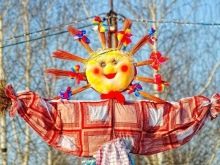

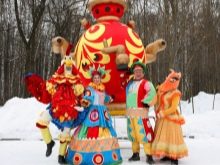
Peculiarities
Shrovetide week as a whole was called "break". At this time, they tried to appease the winter so that it would not interfere with the onset of warmth. The quality and quantity of the harvest depended on him. The fourth day of Maslenitsa week, in turn, was the turning point of the festive week, therefore, special attention was also paid to this day. It was believed that if it rains on this day, then the year will be mushroom.
On Thursday, it was strictly forbidden to do any household work. Instead, it was necessary to conduct wide and large-scale festivities, which ended in a noisy revelry. Prepared carefully for their implementation. On the central street or square of any settlement, ice slides, fortresses, various figures and towns were built, which were not only admired, but also used for active games.
Often young people were divided into teams "Spring" and "Winter" and, playing snowballs, arranged a simulated battle.
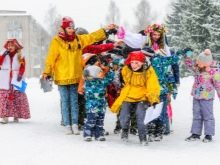

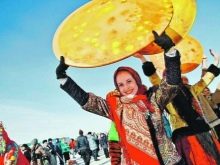
In addition, it was Shrove Tuesday that was considered the time when it was necessary to resolve all controversial issues. People believed that if you let go of old grievances, then new happiness would come.This means mental cleansing. It was customary to meet spring after complete spiritual cleansing, which, according to legend, foreshadowed a good harvest. In order to cleanse the negative energy, it was customary to jump over a blazing fire.
In addition to Walking, Thursday was also called Kolyaduha. The mummers went from house to house and congratulated the owners on the onset of spring. Those, in turn, were supposed to invite guests to the table. Treats should be varied and plentiful, it was believed that economy or greed these days would cause poverty.
The hostesses baked a lot of pancakes, since according to legend, luck and wealth in the new year depended on the number of pancakes for Shrovetide.
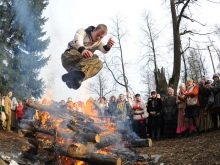

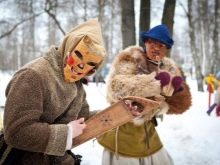
Traditions
Nowadays, entertainments on Maslenitsa are of an amusement nature, and in ancient times all actions had a symbolic ritual meaning, so they were taken seriously.
- Married couples spent time with their families. It was on Shrove Tuesday that the mother-in-law baked pancakes for her son-in-law. On mother-in-law's pancakes, he had to come to visit with his relatives.
- Single boys and girls began street festivities in the circle of young people, by the evening it ended with friendly, cheerful gatherings. It was encouraged when young people brought friends home. At the family table, the parents kept an eye on the guests, which often ended in matchmaking. Such engagements foreshadowed a happy marriage. It should be noted that after the Maslenitsa engagement, the future newlyweds had to make a painted sleigh. On them, they had to stop by for pancakes to everyone who is planned to be invited to the wedding.
- During the day, both young and old went out into the street. Various competitions and competitions, both group and individual, were held here.
- Some of the most common competitions included fistfights, tug-of-war, and pole-climbing for a present. These competitions have always attracted crowds of spectators. In the intervals between competitions, girls and boys danced in round dances and sang songs.
- The game was of particular importance. Newlyweds or couples, after engagement, rolled down the icy mountain in beautiful painted sleighs. Boys and girls who were not in a relationship, rolling down the hill, had to give each other a kiss. If someone did not want to do this, then they were turned over into a snowdrift.
- In addition, Thursday was marked as clean. On this day, before the festive feast, it was imperative to go to the bathhouse for bodily cleansing.
Spiritual cleansing came after the complete resolution of conflicts.
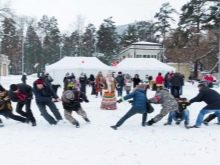

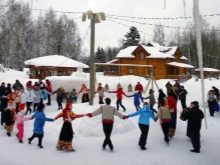
How is it celebrated?
The main condition for celebrating Shrovetide is to make everyone comfortable. For this reason, when preparing the script, it is necessary to involve all guests, young and old. Today Shrovetide festivities are usually held for children in order to acquaint them with the traditions and culture of the past. Below is a celebration scenario that can be easily adjusted to suit different age categories. Dressed guests gathered in the hall, decorated in a spring-winter manner. Bear runs into the hall (for adults it is better to use the image of a Buffoon or Parsley).
Bear:
- The sun began to bake,
But I don't want to get up.
I wish I had a little more
Take a nap under the snow.
(The blizzard made a noise, whirled.)
Blizzard: You, Mishutka, do not rush.
If you want some more sleep.
And I will howl
Sing songs to you.
(The bear falls asleep, the blizzard has played out even stronger: you can stage it through the loud music of the howling of the snow. The peasants appear.)
Peasants:
- Something you can't see the sun, you need to “collect” the field.
- Yes, Ivan, things are bad. Do not be left without grain.
(An old man appears)
Old man: To see the sun, we need to call him.
(The men whisper and disperse. The people appear: girls with pancakes, bagels, young men dressed according to all the rules.)
Girls:
- Hello, guests, gentlemen, we have come here now to call the sun and greet spring as soon as possible.Treat yourself to a pancake, enjoy the warmth (the guests are treating themselves). Now get up in the circle, we will meet the sun onion.
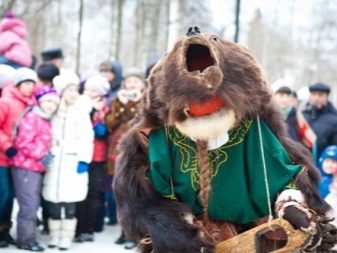
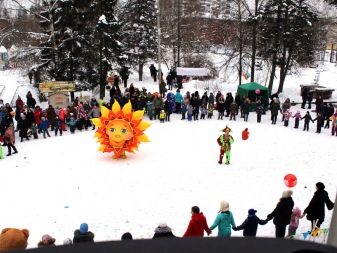
Carousel game
Colored ribbons are tied to the pole. Their number should be 1 less than the number of children. An adult rotates the pole to the accompaniment of music. The guys try to grab onto the tape after the music is paused. The one who did not get the ribbon is eliminated from the game. In the absence of a pole, the use of a hoop is allowed. It would be a good option if the ribbons are tied to the belt of an adult. For adults or older children, this will complicate the process of taking the tape, since the driver may jump to the side. The driver, driving the carousel, sings, and the guests pick up:
Barely
We spun on a merry-go-round
And then it's better for everyone to run and run.
But wait, take your time
Pause our carousel.
One two Three,
Carousel, freeze.
Guys: “We played a little, and now let's fight. We will show you Silushka and amuse the guests. "
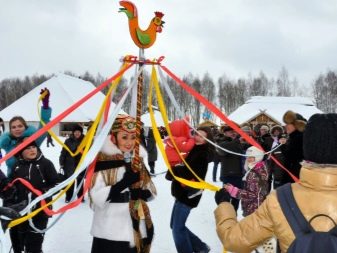
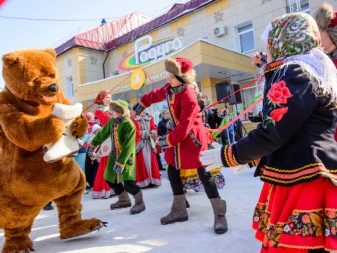
Competition
- Fight with pillows (to attract interest in the competition, it is recommended to conduct it on a bench).
- Tug of war (all comers participate in the competition).
- Eating pancakes for speed.
Girls: “We sat down a little, let's stand in a circle for now. We will sing and dance in round dances and play. "
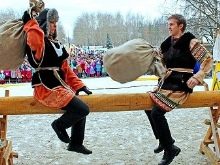

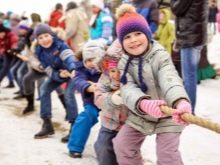
Round dance games
Not a single festivities in Russia were complete without the beloved round dance. This entertainment is not only amusement, but also aimed at team building. Singing children during a round dance accelerates the development of the articulatory apparatus.
"Round dance with a scarf"
In the middle of the circle is Shrovetide and sings along:
I'm Shrovetide, oh with a scarf, I'll go with a scarf
I'll run to everyone!
I have a handkerchief on, you grab it, buddy!
My handkerchief is calling spring, it will bring you glory!
The dancers sing along:
Spring, spring, come red! We will meet the sun, see off the winter together!
We are waiting for you with joy, give us a ray!
After these words, Maslenitsa chooses 2 guys and points to them. They stand in a circle and, turning away from each other, run in opposite directions on command. The first person to reach Maslenitsa wins. His task is to grab the handkerchief first.
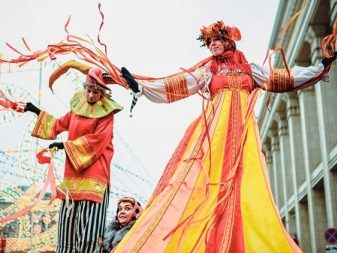
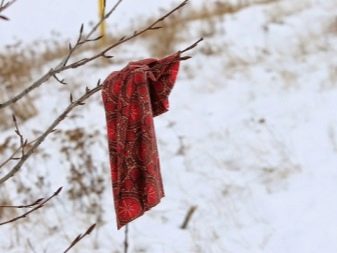
Round dance game "Imagine"
To the accompaniment of musical accompaniment, the participants in the round dance pass a scarf to each other. When the music stopped, the one who had a handkerchief in his hands came out to the center. Its task is to entertain the crowd with dance, song, etc.
Burners game
Participants in the festivities are lined up in a column and raise their hands, while holding on in pairs. Those who close the column, without letting go of their hands, go through the entire column to the beginning. All participants do the same. After that, the players sing "Burn, burn bright".
Burn, burn bright
See that it doesn't go out!
Take a look at the sky
There birds fly
Bells are ringing:
Ding-dong, ding-dong,
Run away quickly!
As soon as the song ends, the participants standing at the beginning of the column, letting go of their partner's hand, rush to the end of the column. The host is trying to catch up with them at this moment. If someone is caught, he becomes water. If the participants have run, then the driver does not change.
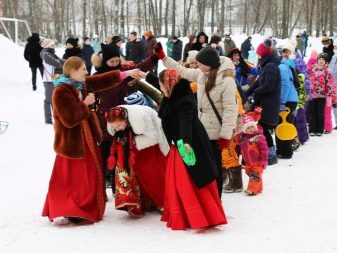
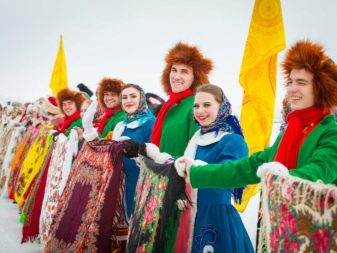
(The Bear appears.)
Bear:
It seems it's time to get up (yawns).
The sun began to bake (stretches)!
It means that warmth is approaching,
The forest will be full of berries!
Guys:
To help the sun to help the ice and cold melt,
We need with you, friends, to set fire here.
(Burning a stuffed animal. In kindergartens, for the sake of safety, it is better to replace this process with tea with pancakes.).
The presented contests can be held both indoors and outdoors. It is worth taking care of the musical accompaniment of all games and competitions in advance. In between events, you can prepare, together with the children, congratulations in the form of poems.
